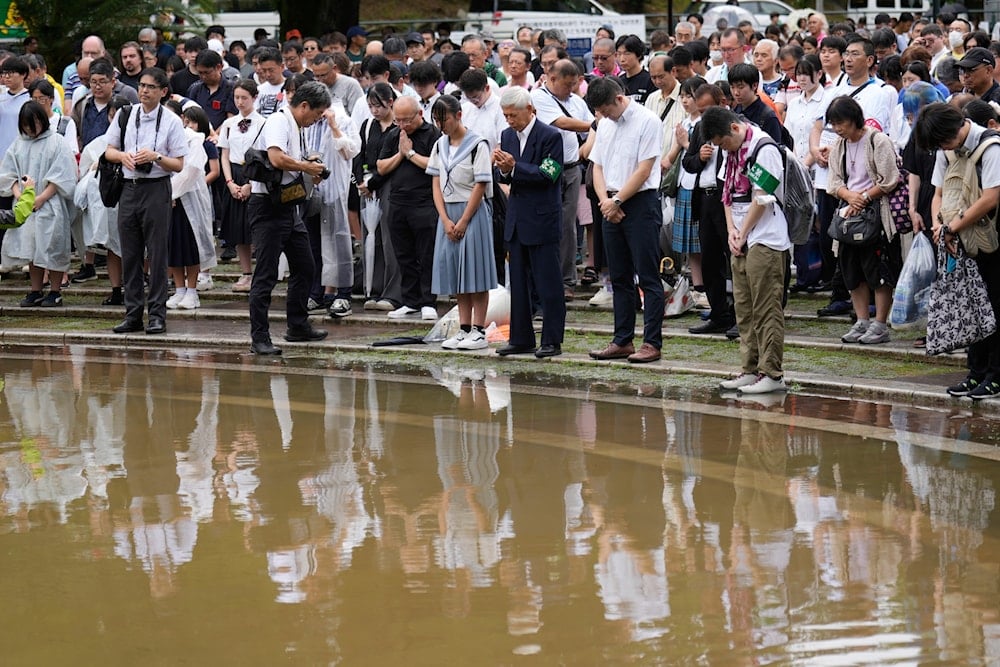Nagasaki mayor warns of nuclear war on 80th anniversary of atomic bomb
Nagasaki commemorates the 80th anniversary of the 1945 US atomic bombing with solemn prayers and urgent calls for global nuclear disarmament.
-

People observe a minute of silence at the Atomic Bomb Hypocenter Park, during a ceremony to commemorate the 80th anniversary of the day an atomic bomb was dropped on the Japanese southwestern city, Nagasaki, Japan, Saturday, Aug. 9, 2025 (AP)
Thousands bowed their heads in prayer in Nagasaki to commemorate the 80th anniversary of the city's atomic bombing by the US, as the mayor warned that rising global tensions risk pushing the world toward nuclear war again, during solemn ceremonies held on Saturday.
On August 9, 1945, the western Japanese city of Nagasaki was devastated when the United States detonated "Fat Man", a 10,000-pound plutonium-239 bomb that flattened the city and immediately killed approximately 27,000 of its 200,000 residents, with the death toll rising to around 70,000 by the end of that year as victims succumbed to acute radiation exposure.
At 11:02 am, the exact moment the bomb detonated eight decades earlier, the crowd fell into a solemn silence before Mayor Shiro Suzuki urged world leaders to recommit to the foundational principles of the UN Charter and demonstrate real progress toward nuclear disarmament, emphasizing with urgency that further inaction on eliminating these weapons could no longer be tolerated.
Addressing an estimated 2,700 attendees, according to Japanese media reports, Suzuki solemnly warned the crowd, "This is a crisis of human survival that is closing in on each and every one of us," as he emphasized the growing nuclear threat facing humanity.
'Bodies strewn about like stones'
Suzuki posed the question of whether a "global citizen" mindset could become the catalyst for healing the divided world, as he advocated for an approach rooted in shared understanding and collective support rather than conflict.
He quoted a survivor's testimony to describe the aftermath of the bombing: "Around me were people whose eyeballs had popped out... Bodies were strewn about like stones."
The US military reportedly selected Nagasaki as a target both for its strategic importance as a key industrial center and seaport, as well as for its topographical characteristics, with the surrounding hills expected to intensify the bomb's destructive impact by containing and reflecting the blast wave.
The annual ceremony at Nagasaki Peace Memorial Park, marking this significant anniversary, drew representatives from 95 nations and territories, including the nuclear-armed United States, with attendees gathering to reflect on the tragic legacy of atomic warfare.
"Israel", which maintains a policy of nuclear ambiguity, neither confirming nor denying that it has nuclear weapons, also attended the ceremony.

 3 Min Read
3 Min Read










